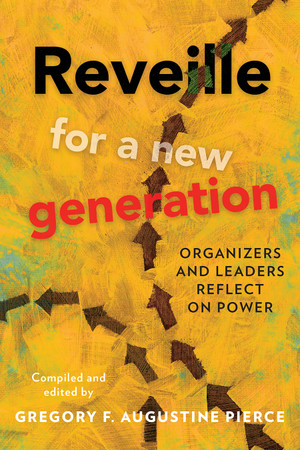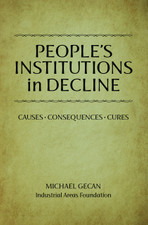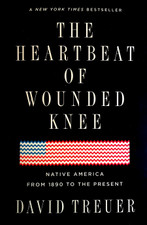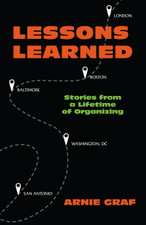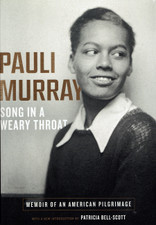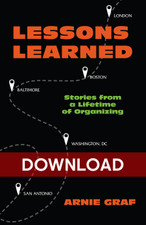Product Description
Second Place, Anthology, 2021 Catholic Press Association Book Awards
Powerful or Powerless?
You too can do something, you too can make a contribution, you too can get in the way; but if you’re going to do it, do it full and with love, peace, nonviolence, and that element of faith.—John R. Lewis, interview with Krista Tippett for the On Being Project, March 28, 2013
One way to think about power is that organizing is a right, at least in a true democracy. This collection of some fifty stories, essays, letters, poems, sermons, eulogies, and other pieces of writing by leaders and organizers connected either directly or in spirit with the Industrial Areas Foundation (IAF) shows how people in America—from the very beginning to today—have always figured out how to “fight back” and “fight for” against those who would ignore, abuse, or oppress them, their families, their institutions, and their communities. Each entry is accompanied by background information on that writer and three provocative questions for personal reflection or group discussion.
The idea that change usually comes incrementally, over a long period of time, as people build their own power organizations that address the root causes of social problems (“root” being the very definition of the word radical) is newly relevant during the triple-headed crisis we are experiencing in the world today: novel pandemics; growing and unsustainable inequalities of wealth; and volatile racial, religious, and ethnic tensions. To be successful, people’s organizations need to follow the universals of relational power written about so passionately and eloquently by the more than fifty organizers and leaders in this book. Here are a few of those principles.
- People’s organizations must be non-partisan. Not “non-political,” but not beholden in any way to elected or appointed officials or political parties, including taking their money or endorsing their candidates.
- People’s organizations must be diverse in as many ways as humanly possible in each situation: by race, ethnicity, faith and philosophy, political persuasion, economic circumstances, education levels, gender identity, sexual orientation, geography, age, class, or caste. This diversity must be real (not token), non-negotiable, and absolutely non-exclusionary.
- People’s organizations must be made up of a collection of dues-paying “people’s institutions” (defined as institutions that people have—or should have—control over) such as religious organizations, labor unions, not-for-profit service providers, community and small-business groups, ethnic and civil rights organizations.
- People’s organizations must follow the Iron Rule: Never do for people what they can do for themselves. This requires a commitment to leadership training and development, reflection and mentoring, reading and power analysis, and action and evaluation.
Contributors
Introductions, Notes, and Questions
by Gregory F. Augustine Pierce
Part One: Roots of Organizing
by Omar bin Said, Frederick Douglass, Sojourner Truth, Lucretia Mott, Emma Lazarus, Lucy Gonzáles Parsons, Ohiyesa, Mother Jones, John L. Lewis, Stoyan Pribichevich, Pauli Murray, Student Nonviolent Coordinating Committee, Ella Baker, John R. Lewis
Part Two: Foundations of Organizing
by Saul Alinsky; Cesar Chavez; Michael Gecan; Zeik Saidman; Tom Mosgaller; Ernesto Cortes, Jr.; Arnie Graf; Kathleen O’Toole; Lionel Edmonds; Jeff Krehbiel; Ed Chambers; Dick Harmon; reflections on Christine Stephens by Ernesto Cortes, Jr., Elizabeth Valdez, Anna Eng, Lady Carlson, Krysten King, Josephine Lopez Paul, and Pearl Ceasar; Ronnie Crudup; Martin Trimble
Part Three: Future of Organizing
by Cheri Andes, Stephen Applegate, Chevon Chatman, Bob Connolly, Dean Deida, Keisha Krumm, Alisa Glassman, Matthew Marienthal, Cynthia Marshall, Adrienne McCauley, Malik Mujahid, Perry Perkins, Burns Stanfield and Larry Gordon, Amy Totsch, Richard Townsell, Paul Turner
Epilogue
by David Truer from his book The Heartbeat of Wounded Knee
Read more about this book on the editor's blog: Writing for Community Organizers and Leaders.
FREE SHIPPING ON ALL ORDERS OVER $29.85. ORDER SECOND COPY OF THIS OR ANOTHER BOOK FOR YOURSELF OR A FRIEND. CALL 800-397-2282 FOR MULTIPLE-SAME-TITLE DISCOUNTS.
Product Reviews
-
Pierce volume on target

Posted by Frank C. Pierson, Jr. on Dec 8th 2020
Review of Reveille for a new generation compiled and edited by Gregory F. Augustine Pierce
Late in my 40 year career as an organizer with the Industrial Areas Foundation it dawned on me how important writing is. This may strike the reader as odd considering I grew up in an academic household surrounded by books. But there it is. Not just any writing but deep digging - into one’s own history, values, foundations, the work itself. Urgency in this regard is intensified by growing technological diversions and a myriad of excuses well known to anyone who has given writing a try. Then add to this the disarray in public life in the US and abroad and the need to sort things out. Writing in this context isn’t an option. It’s a necessity.
Greg Pierce hits the mark with his new book, Reveille for a New Generation: Organizers and Leaders Reflect on Power. Not only does his edited volume publish the work of new voices in the organizing world, he does so with careful framing that helps build a scaffolding of understanding that deepens the reading (and discussing) experience.
Every reader will have favorite entries by leaders or organizers they know or want to know, by legendary figures in the organizing world now deceased or about largely unrecognized victories that institutional organizing has achieved.
Coming in rapid fire succession to Arnie Graf’s book that focuses on “Lessons” from a storied career in IAF citizen organizing, anyone broadly interested in social change will find the two new books published by ACTA Publications richly rewarding.
 Loading... Please wait...
Loading... Please wait...

